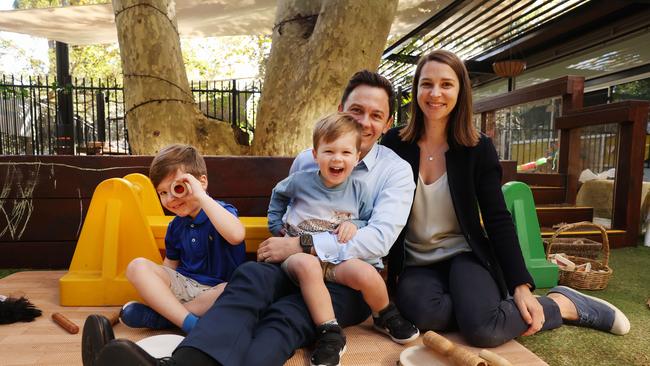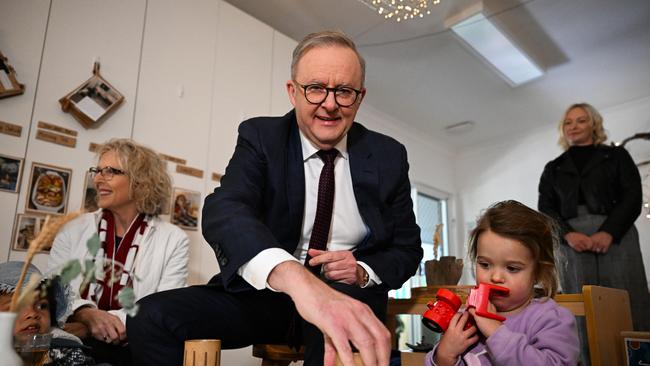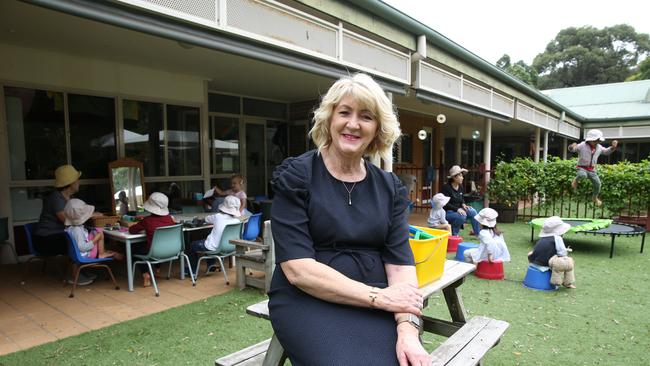Childcare operators Uniting, KU Children’s Services oppose fee rise cap that is part of $3.6b wage rise pledge
Some of the state’s biggest childcare providers are crying poor over a $3.6 billion pay rise pledge for their workers. See how it could impact services.
Local
Don't miss out on the headlines from Local. Followed categories will be added to My News.
Some of the state’s biggest childcare providers are crying poor over a massive pay rise pledge for their workers due to a condition they fear could impact the viability of services.
Operators, including Uniting and KU Children’s Services, have taken aim at a Federal Government promise to bankroll a $3.6 billion wage hike for 200,000 workers in the childcare sector.
Childcare operators must agree to limit any rise in their fees to 4.4 per cent in order for staff to receive the 15 per cent lift in wages over two years.
But KU Children’s Services, which operates centres across NSW, said the fee increase cap does not reflect increasing operating costs and could also involve a “considerable administrative burden on providers”.
“(The 4.4 per cent) may not be enough to cover rising overheads, including leases, insurance and wage increases already passed down,” the organisation said in a submission to the government.

Uniting, which operates 50 childcare centres in NSW and the ACT, also opposed caps on childcare centre fees with the organisation’s director of communities, Andrew Montague, saying it can affect the viability of services.
The two-year funding program for wages has also faced criticism over uncertainty that it could be extended beyond 2025.
Some operators argued that operators could agree to wage increases without certainty as to how they would be funded in the future.

Chief executive of KU Children’s Service, Christine Legg, said this could result in operators having to impose “higher fees” in order to pay staff wages.
“There could be an undesirable corresponding fee rise, post the grant period unless new funding mechanisms are available,” she said.
The government had argued that funding would be “good for children, good for workers and good for families, as well as being good for our economy”.
The funding would give childcare workers 10 per cent raise from December, followed 12 months later by a further 5 per cent – equivalent to an average pay rise of $103 this year, increasing to $155 more per week in December 2025.

The government has indicated that longer-term funding arrangements would be determined as part of its response to assessment reports by the ACCC and Productivity Commission.
The Early Learning and Care Council of Australia has supported the wage increases, saying increased remuneration will improve the attractiveness of a career in early learning and care, workforce retention and “promote better career progression”.
Business Council of Australia executive director of policy, Wendy Black, said the fee caps could have unintended consequences including the impact on service quality.
“This could include operators needing to make changes in areas other than staff remuneration to maintain their profitability such as meals and consumables for children in care,” she said.





